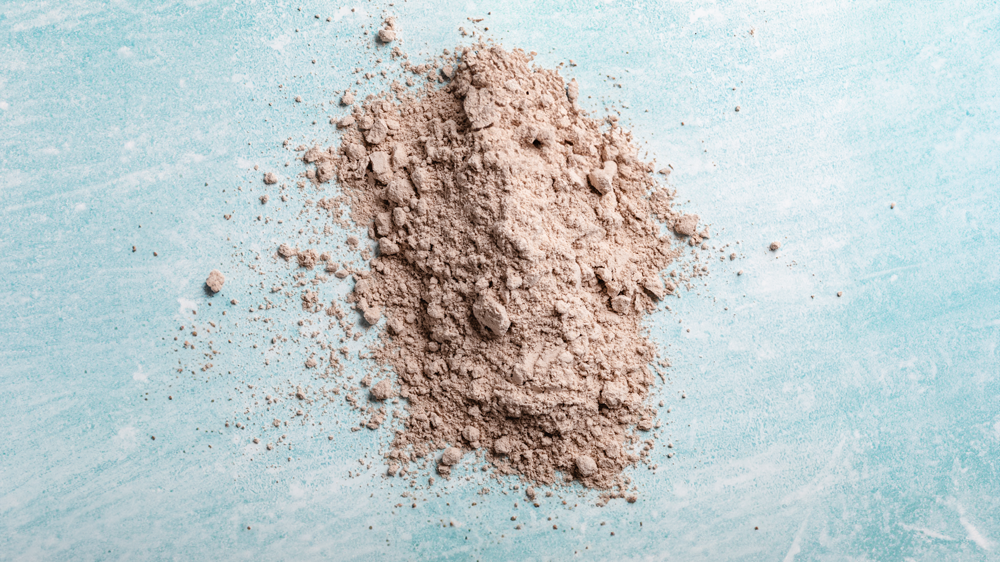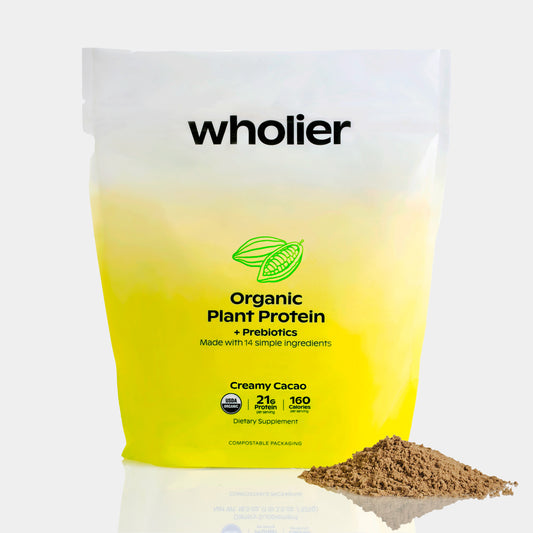
How to Choose an IBS-Friendly Protein Powder?
Living with Irritable Bowel Syndrome (IBS) often means having to navigate your way around food labels, ensuring what you consume doesn't throw your gut health off balance. You're not alone in this journey and when it comes to an integral component of your health regimen, like protein powder, we've got your back. But how do you find a protein powder that will give you all the benefits without aggravating your IBS? Let's discuss.
What’s the Deal with Protein Powders and IBS?
Just to set the record straight, protein powders in themselves are not inherently troublesome for those with IBS. The real culprits that can trigger an IBS flare-up are specific ingredients hiding in these powders(1). Many protein powders contain additives, sugars, and even lactose, which might not agree with your sensitive gut(2).
There's also a scientific rationale behind this. A study in 2018 revealed that those suffering from IBS often have intolerances to certain foods, and lactose is one of the most frequent offenders(3). Consequently, protein powders rich in whey and casein, which are derived from milk, may exacerbate IBS symptoms.
Many protein powders contain additives, sugars, and even lactose, which might not agree with your sensitive gut.
So, What Type of Protein Should I Opt for?
If you're dealing with IBS, consider transitioning to plant-based proteins. These are usually more gentle on the digestive system, making them a safer bet for people with IBS. Pea protein and rice protein powders, in particular, have gained quite a following. They not only provide comparable protein content to whey and casein, but are also less likely to set off digestive distress(4).
However, it's important to remember that not all plant-based proteins are equally suited for IBS sufferers. For instance, soy protein can be problematic as it contains FODMAPs (fermentable oligo-, di-, mono-saccharides, and polyols). These compounds can induce IBS symptoms in some individuals(5). Therefore, while plant-based proteins are generally a safer option, there can be exceptions.
What Additives Should I Watch Out for?
Now that we've figured out the type of protein you should look for, let's discuss other potentially harmful ingredients that might be lurking in your protein powder. A significant factor that you need to keep an eye on is the inclusion of artificial sweeteners, flavors, and colors. These additives are not just empty calories; they can actively stimulate gut symptoms in those with IBS(6).
But what are these troublesome additives? They can range from artificial sweeteners like sucralose, aspartame, and acesulfame potassium to artificial colors labeled as 'Blue 1' or 'Red 40.' Even seemingly harmless ingredients like 'natural flavors' can sometimes hide monosodium glutamate (MSG) or other excitotoxins that can agitate an IBS-prone gut(9).
Moreover, beware of protein powders that are packed with excessive sugars, especially high fructose corn syrup. Fructose malabsorption is a common issue for people with IBS, leading to heightened symptoms(7).
Should I Give Preference to Protein Powders with Probiotics?
There's a lot of buzz around probiotics when it comes to managing IBS. They are often touted for their potential in balancing the gut microbiota, which can positively influence IBS symptoms. However, it's a bit complicated when it comes to protein powders fortified with probiotics.
While some studies suggest beneficial effects of probiotics on IBS, others show negligible improvements(8). Also, protein powders with added probiotics often contain other additives that may not be ideal for those with IBS.
The verdict? It's not necessary to prioritize protein powders with probiotics if it comes at the cost of introducing potentially problematic additives to your diet. Instead, consider taking probiotics separately in a form that you're confident doesn't contain other potentially triggering ingredients.
Any Other Tips for Choosing a Protein Powder for IBS?
When selecting a protein powder suitable for IBS, don't overlook the importance of clean and straightforward labels. Avoid products that contain a long list of unfamiliar ingredients. Usually, the shorter the ingredient list, the less likely the product is to trigger your IBS.
Also, remember to give your body time to adjust to a new protein powder. Start with a smaller serving size and slowly increase it to allow your body to get used to it.
What's the Final Word on Protein Powders for IBS?
Finding the perfect protein powder for IBS is an individual journey that may require some trial and error. You need to listen to your body and see how it reacts to different ingredients. But the general rule is to opt for plant-based proteins (with some exceptions like soy), steer clear of known triggers such as lactose and fructose, and be aware of potentially harmful additives.
Keep in mind that everyone's body is different, and what works for one person may not work for you. However, by keeping these guidelines in mind, you'll be well on your way to finding a protein powder that supports both your fitness goals and gut health.
Sources:
(1) Ligaarden, S.C., Axelsson, L., Naterstad, K., Lydersen, S., & Farup, P.G. (2012). Intolerance to dietary biogenic amines: a review. Annals of Clinical Biochemistry, 49(5), 474-480.
(2) Savaiano, D. A., Ritter, A. J., Klaenhammer, T. R., James, G. M., Longcore, A. T., Chandler, J. R., ... & Nakamura, N. (2013). Improving lactose digestion and symptoms of lactose intolerance with a novel galacto-oligosaccharide (RP-G28): a randomized, double-blind clinical trial. Nutrition Journal, 12(1), 1-13.
(3) Misselwitz, B., Butter, M., Verbeke, K., & Fox, M. R. (2019). Update on lactose malabsorption and intolerance: pathogenesis, diagnosis and clinical management. Gut, 68(11), 2080-2091.
(4) Joy, J. M., Lowery, R. P., Wilson, J. M., Purpura, M., De Souza, E. O., Wilson, S. M., ... & Jäger, R. (2013). The effects of 8 weeks of whey or rice protein supplementation on body composition and exercise performance. Nutrition Journal, 12(1), 1-7.
(5) Ong, D. K., Mitchell, S. B., Barrett, J. S., Shepherd, S. J., Irving, P. M., Biesiekierski, J. R., ... & Gibson, P. R. (2010). Manipulation of dietary short chain carbohydrates alters the pattern of gas production and genesis of symptoms in irritable bowel syndrome. Journal of Gastroenterology and Hepatology, 25(8), 1366-1373.
(6) Mayer, E.A., Tillisch, K., & Gupta, A. (2015). Gut/brain axis and the microbiota. Journal of Clinical Investigation, 125(3), 926-938.
(7) Wilder-Smith, C. H., Materna, A., Wermelinger, C., & Schuler, J. (2005). Fructose and lactose intolerance and malabsorption testing: the relationship with symptoms in functional gastrointestinal disorders. Alimentary Pharmacology & Therapeutics, 39(6), 572-582.
(8) Ford, A. C., Harris, L. A., Lacy, B. E., Quigley, E. M. M., & Moayyedi, P. (2020). Systematic review with meta‐analysis: the efficacy of prebiotics, probiotics, synbiotics and antibiotics in irritable bowel syndrome. Alimentary Pharmacology & Therapeutics, 50(10), 1041-1060.
(9) Chassaing, B., Van de Wiele, T., De Bodt, J., Marzorati, M., & Gewirtz, A. T. (2017). Dietary emulsifiers directly alter human microbiota composition and gene expression ex vivo potentiating intestinal inflammation. Gut, 66(8), 1414-1427.




